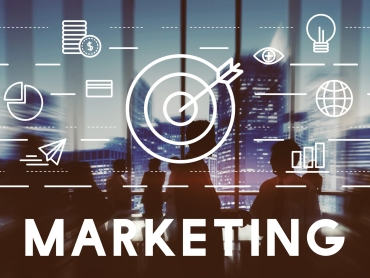Behind every successful organization is not just an innovative product or strong market strategy, but a dedicated team of people working toward a common vision. At the heart of building and empowering this team is human resources management (HRM). Once viewed mainly as a hiring and payroll function, HR today has evolved into a strategic force that drives culture, employee engagement, compliance, and long-term business growth.
This article explores what HR management really means in 2025, why it’s more crucial than ever, and how companies can adopt modern HR practices to create a thriving, people-first workplace.
What Is Human Resources Management?
Human Resources Management refers to the structured strategies, processes, and tools that organizations use to attract, develop, manage, and retain their workforce. It goes beyond the basics of recruitment and payroll—modern HR plays an active role in shaping employee experience, building culture, and driving organizational success.
At its core, HR management includes:
Talent Acquisition & Onboarding – Attracting top talent, assessing skills, and creating smooth integration for new hires.
Performance Management – Setting clear expectations, offering feedback, and aligning individual goals with company objectives.
Learning & Development – Providing training, mentorship, and career advancement opportunities.
Compensation & Benefits – Ensuring competitive salaries, perks, and rewards that motivate employees.
Employee Relations – Building trust, resolving conflicts, and creating an inclusive, supportive workplace.
HR Compliance – Managing policies and ensuring the company adheres to labor laws and ethical standards.
HR Analytics – Leveraging data and technology to make smarter workforce decisions.
Why HR Management Matters in 2025
The workplace is rapidly changing. Hybrid work, digital transformation, and shifting employee expectations have transformed how organizations approach HR. In 2025, HR functions are not just supportive—they are strategic drivers of success. Here’s why HR management is indispensable:
Talent Acquisition & Retention
In competitive markets, attracting skilled employees is critical. A strong HR strategy ensures businesses not only hire top talent but also retain them with supportive growth opportunities and recognition.Employee Engagement & Productivity
Happy employees are productive employees. When HR prioritizes engagement, employees feel valued, leading to higher performance and loyalty.Compliance & Risk Management
With ever-changing labor laws and regulations, HR ensures businesses stay compliant while protecting both the company and employees.Culture & Diversity
A positive culture is a business asset. HR management creates inclusive environments that respect diversity, drive innovation, and reflect company values.Business Sustainability
Investing in people is investing in long-term growth. HR strategies directly impact profitability, innovation, and competitiveness.
Core HR Functions in 2025
The role of HR has expanded, especially with the integration of technology, analytics, and people-first strategies. Below are the core HR functions in 2025:
1. Recruitment & Onboarding
Modern recruitment uses AI-driven tools, data analytics, and employer branding to attract top candidates. Effective onboarding goes beyond paperwork—it creates a welcoming experience that integrates new hires into company culture.
2. Performance Management
Gone are the days of once-a-year reviews. Continuous performance management in 2025 focuses on regular check-ins, real-time feedback, and coaching that aligns personal goals with business growth.
3. Learning & Development
Reskilling and upskilling are now essential. HR provides employees with training programs, mentorship opportunities, and career paths that adapt to evolving industry needs.
4. Compensation & Benefits
Employees in 2025 expect more than a paycheck. Companies now offer holistic packages that include flexible work schedules, mental health support, retirement plans, and tailored incentives.
5. Employee Relations
Healthy workplaces depend on trust and respect. HR professionals foster open communication, resolve conflicts, and ensure inclusivity while building strong employee relations.
6. HR Compliance
Staying compliant with global labor laws and data privacy regulations is more complex than ever. HR ensures organizations remain ethical, lawful, and accountable.
7. HR Analytics & Technology
Data-driven HR allows businesses to predict workforce trends, measure employee satisfaction, and make smarter hiring and retention decisions.
Building a People-First Workplace
The modern workforce values purpose, flexibility, and growth opportunities. To thrive in 2025, organizations must embrace people-first HR strategies that focus on employee well-being and development.
Here are practical tips to humanize HR management:
Active Listening – Regular surveys, open forums, and one-on-one check-ins give employees a voice.
Personalized Onboarding – Assigning mentors and offering engaging welcome experiences helps new hires feel at home.
Career Growth Support – Training, certifications, and clear promotion paths show employees their future matters.
Celebrating Achievements – Recognition programs boost morale and reinforce positive behavior.
Prioritizing Well-being – Flexible work hours, wellness programs, and mental health resources are now must-haves.
Championing Diversity & Inclusion – A diverse workforce sparks innovation and builds stronger teams.
Common HR Management Mistakes (and How to Avoid Them)
Even with the best intentions, many businesses stumble in HR management. Avoid these pitfalls:
Relying on Outdated Tools – Manual paperwork slows efficiency. Invest in HR software and automation.
Ignoring Continuous Feedback – Annual reviews alone are no longer effective. Regular feedback is key.
Overlooking Culture – Focusing only on processes without nurturing culture leads to disengagement.
Neglecting Mental Health – Failing to address employee well-being creates burnout and turnover.
One-Size-Fits-All Policies – Modern HR requires personalization to meet diverse employee needs.
The Future of HR Management
As businesses adapt to technological disruption, remote work, and evolving employee expectations, HR management in 2025 will continue to transform. Organizations that embrace digital tools, focus on employee well-being, and foster inclusive cultures will stay ahead.
Ultimately, human resources management is no longer just an internal department—it’s a strategic partner that shapes the future of organizations. By adopting modern HR practices and focusing on a people-first workplace, businesses can build teams that are motivated, loyal, and prepared for long-term success.








